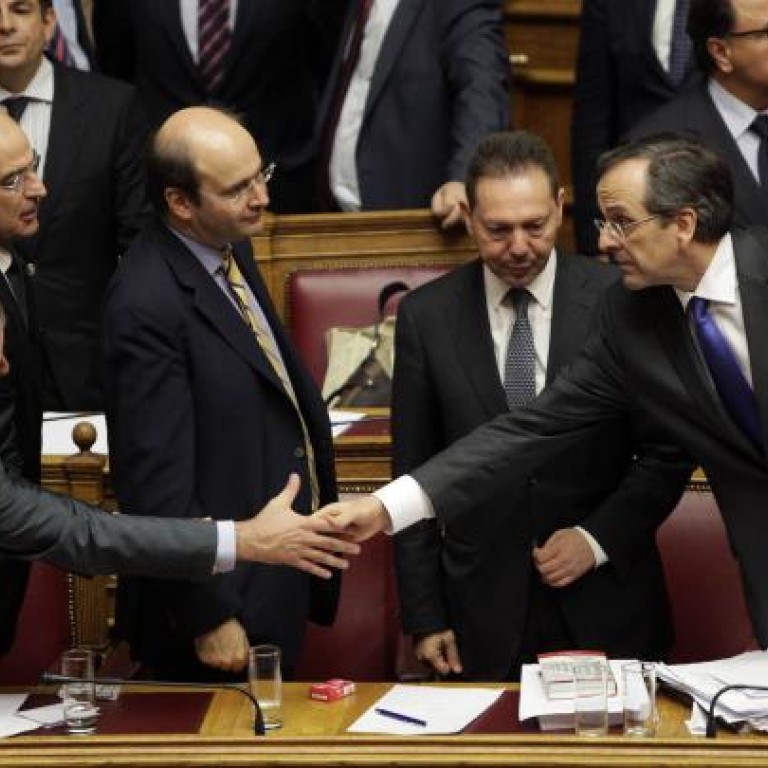
Greek lawmakers pass austerity package
The Greek parliament has narrowly approved a new austerity package demanded by EU-IMF creditors to keep the country’s economy afloat.
Conservative and socialist lawmakers from Greece’s three-party coalition government voted to adopt the 18.5-billion-euro (US$23.6 billion) budget cuts by 2016 despite protests earlier in the day by more than 70.000 people who massed outside the parliament.
According to Athanassios Nakos, second deputy speaker of the parliament, 153 out of 299 lawmakers voted in favour of the bill that includes spending cuts and reforms to be implemented by 2016, while 128 voted against.
There were significant leaks from socialists Pasok, junior partners of the three-party coalition government.
Pasok leader Evangelos Venizelos announced that five of his party’s deputies who voted against the measures as well as a sixth one who did not show up were expelled from the party.
The government’s third junior partner, the Democratic Left, also maintained its ground against the measures, as it had announced before the vote.
“These are unfair measures and there is no reason to beautify them,” conservative Prime Minister Antonis Samaras had said earlier while addressing the parliament, referring to cuts in salaries and pensions.
But he added: “Nobody can be exempted from these measures.”\
“We have fought our battle for credibility and we have won it to a great extent... Today we are called to seal the country’s new credibility,” Samaras said.
A huge protest outside the parliament earlier in the day ran peacefully for nearly two hours before turning violent.
Police used tear gas to repel a group of nearly 300 people, who responded by throwing petrol bombs, according to a police source, who said 20 people were detained.
Tension also arose during anti-austerity protests in Heraklion, in the southern island of Crete, as protesters attacked shops and ATM machines.
